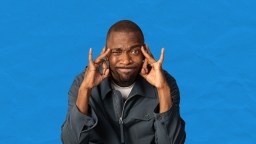Barack Obama said he’d appoint one. Who would it be?
Question: Who would you like to see appointed as the chief technology officer for the next US administration?
Jeff Jarvis: I asked on my blog who should be the next CTO for the next government; because Barack Obama has said he’s going to have one. I was surprised that no one suggested Al Gore. After all, you know the unfair joke is that he invented the internet.
I think that someone like that could be good. But I also think that I would look to perhaps one of the founders of Google.
When I was at Davos this last year, I watched with amazement as there was a discussion about the environment with Al Gore and Bono at one session where Al Gore was saying, “The way to solve this is through carbon taxes and prohibitions and regulation.”
And then I went to a session with the Google Foundation with Larry and Serge, as they’re called, and they saw the world very differently. They saw the world as engineers, rather than prohibitions, they were talking about inventions. If we can get the cost of electricity produced well down below that produced by dirty coal, then we’ve changed the world; and they have.
So their answer was not taxes and prohibitions; their answer was investment and invention. And it was a window to me on the engineers mind; engineers look for the problem and then look for the solution. The seduction of the engineer’s view is that every problem has a solution and life is not sometimes so clean.
But I think that if we hire an engineer who thinks like that, not an Al Gore and a politician, god bless him, but instead someone like one of the founders of Google to become the chief technology officer of America. And they start looking at government as a platform, and they start looking at it as a means to find and solve problems, not to make points.
I think it could bring a new DNA into the blood stream of American government.
Technology can and will open up government the same way it’s opening up media and every other industry out there. It’s lagging behind, but it’s going to happen.
First and foremost, because we can talk to each other now.
Second, because we can coalesce around causes. I think we’ll become less of a two party country and more of a hundred thousand cause country where from left and right and anywhere we can gather around each other.
Third, we demand transparency online, we’re going to demand that kind of transparency from government. And when we don’t get it, we’re going to go find it. So we have projects like Congresspedia and efforts to bring earmarks to the public.
And in the UK there are similar efforts going on where we can use the public’s knowledge to say, “Well what do we know about these earmarks, what do we know about the activities of our congressmen? And if you don’t expose it, we will."
And fourth, I think that where I hope we go to with technology and government is not to dwell always on the negative, on the gotcha moments, on the scandals, but instead to dwell on the positive and what we can actually do as a government.
Dell Computer and Starbucks just started idea platforms based on its sales force software. So my Starbucks idea--you can go in and suggest you want a separate line for brew coffee because you’re tired of waiting for the guy with the really complicated order. And then Starbucks comes in and they deal with that and they’ve got to start to implement some ideas. Same with Dell.
Why don’t we have that for government? Why don’t we have a forum where we can go in and make suggestions and the good suggestions will gain traction and will gain votes and gain ideas and discussion and will be improved and the government gets involved in it? That’s what we should be doing.
The bad ideas, by the way, will die on the vine and I think that you have to have some faith in the public. The internet has made me a populist; TV made me a populist. When I realized that good shows would rise in the ratings and bad shows would fall, it meant that the public had taste. There’s a continuous line here from that realization I had in TV to the internet itself where the more choice we give people, the better choices they make. And I realize that if you don’t inherently trust the people, then you don’t believe in free markets, you don’t believe in democracy, you don’t believe in reformed religion, you don’t believe in all these things.
So the internet to me is about hearing from the people and being able to trust the people more. So the internet becomes kind of a shadow government that will cross over boundaries and cross over ideologies and cross over party lines. I’m very hopeful about the impact of the internet on government.
Recorded on: April 30, 2008





